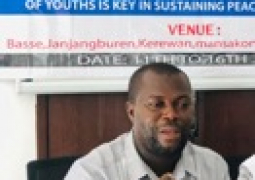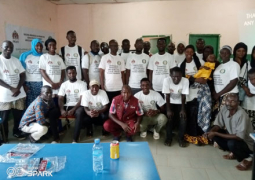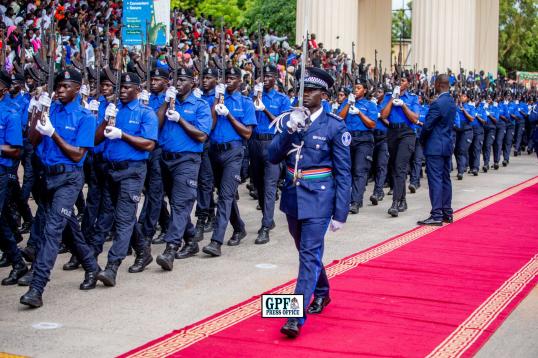
The recruits, who underwent six months of intensive training from 27 January to 6 August, were equipped with a wide range of skills including drill, martial arts, riot control, weapons handling, and policing procedures. The ceremony marked a significant step in the GPF’s ongoing transformation under the Security Sector Reform Strategy (SSRS) and the National Security Policy (NSP).
Inspector General of Police (IGP) Seedou Mucktarr Touray delivered a powerful address, outlining the strategic vision behind the recruitment drive.
“To be relevant and ready for the emerging challenges, we are calibrating our posture, training and outlook,” he declared.
Touray emphasised that the GPF’s mission is rooted in professionalism, apolitical service, and the protection of fundamental human rights. He reaffirmed the force’s commitment to inclusivity, stating:
“We will not discriminate against anyone because of gender, ethnicity or religion. Our composition reflects our national aspiration to protect the rights of all Gambians through lawful means.”
He praised the government’s support in providing budgetary allocations, infrastructure, and equipment, noting that these resources have been instrumental in strengthening law enforcement capabilities.
Assistant Commissioner of Police (ACP) Lamin Camara, Commander of the Police Training School, commended the recruits for their perseverance and discipline throughout the training.
“Graduating are 1,336 recruits who have completed seven modules in thematic areas such as Police Administration, Evidence and Procedure, Traffic Management, Crime, and General Law,” Camara said.
He highlighted the psychomotor components of the training, which included weapons handling, public order management, and martial arts. The training was conducted in coordination with the Police Intervention Unit (PIU) to ensure quality and ownership.
Camara revealed that the intake includes over 40 university graduates, five medical doctors, and a significant number of teachers bringing a diverse skill set that will enhance the GPF’s human resource base.
“You are armed with the knowledge, skills, attitudes and physical readiness to operate in a modern democratic environment,” he told the recruits. “Always be communicative, coordinative and consultative in your decision-making.”
His Excellency President Adama Barrow graced the occasion, describing the graduation as a moment of national pride.
“This is not a milestone for you alone. We share this moment of celebration with you and your families,” he remarked.
President Barrow reaffirmed his government’s commitment to supporting the GPF with both moral and material resources. He underscored the importance of proactive and community-oriented policing in preventing crime and empowering citizens.
He also referenced the Recovery-Focused National Development Plan (2023–2027), which prioritises policy and institutional reforms, capacity-building, and a results-oriented public service.
“Together with the ideals of the security sector reform and the renewed focus on human security, the new GPF curriculum is infused with modules on community-oriented policing, human rights, human trafficking, and gender and child rights,” Barrow noted.
He concluded by urging the recruits to view their service not merely as a profession, but as a calling to uphold the values of the republic and contribute to the greater good.
Read Other Articles In National News
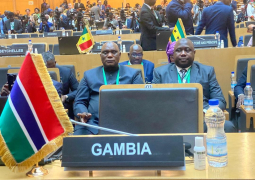
𝐀𝐟𝐫𝐢𝐜𝐚 𝐒𝐞𝐞𝐤𝐬 𝐑𝐞𝐬𝐮𝐥𝐭𝐬, 𝐍𝐨𝐭 𝐒𝐲𝐦𝐛𝐨𝐥𝐢𝐬𝐦 𝐚𝐭 𝐆𝟐𝟎 𝐓𝐚𝐛𝐥𝐞 – 𝑽𝑷 𝑱𝒂𝒍𝒍𝒐𝒘 𝑫𝒆𝒄𝒍𝒂𝒓𝒆𝒔
Feb 17, 2026, 2:30 PM
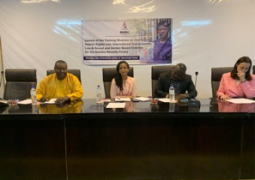
NHRC Launches Training Modules on International Human Rights Law
Dec 10, 2024, 11:11 AM
